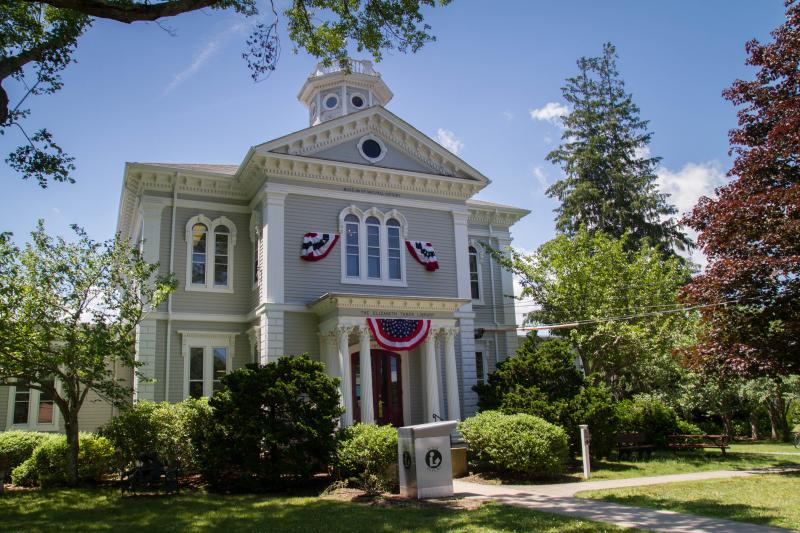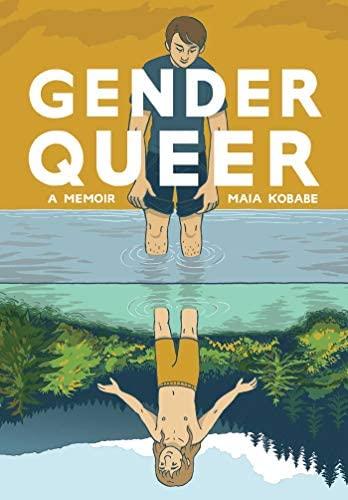How books are banned: A conversation with Tri-town librarians
As residents in the Tri-Town debate over the appropriateness of reading materials in school libraries, local librarians are also re-examining and sharing information about what is available in their own collections.
“It goes back to that fine line about what is art or, in this case, pornography. What is that dividing line? And it’s so subjective,” said Jennifer Jones, Library Director at the Mattapoisett Free Public Library.
Kristen Cardoso, Rochester’s Library Director, acknowledged that there are some differences in what schools and public libraries do about selection, but the basic procedure is similar.
“We use the same vendors when we make purchases, and we look at a lot of the same resources to make decisions,” she said.
Certain books at Old Rochester Schools came under review after complaints were filed about them, said Superintendent Mike Nelson. The complaints were later withdrawn.
The books are: "All Boys Aren't Blue" by George M. Johnson, "Beyond Magenta" by Susan Kuklin, "Flamer" by Mike Curato, "Gender Queer: A Memoir" by Maia Kobabe, "Lawn Boy" by Jonathan Evison, "Out of Darkness" by Ashley Hope Pérez, "The Absolutely True Diary of a Part-Time Indian" by Sherman Alexie, "The Bluest Eye" by Toni Morrison, and "The Hate U Give" by Angie Thomas.
The Old Rochester School District Standards Committee, who would have the say on banning these books, has not scheduled any review or vote on any of these materials. However, members of the community have continued to discuss them both online and in person, at events like a panel on local literacy, hosted by the organization Tri-Town Against Racism.
“There continues to be highly public charged discussions in our community on how and why books are selected for inclusion in libraries,” said Elizabeth Sherry, Marion’s Library Director in an email to Sippican Week.
What banned books are
Between Jan. 1 and Aug. 31 of 2022, the American Library Association documented 681 attempts to ban or restrict books in libraries, with 1,651 unique titles targeted.
“That is the highest number of attempted book bans since the ALA began compiling these banned book lists more than 20 years ago,” said Sherry.
When books make it on to the list, that doesn’t mean they aren’t allowed, said Cardoso. It just means that the book has been challenged in at least one specific place.
Sherry said a lot of times, when a book is being discussed in the media, she sees more requests for the library to get the book rather than to ban it.
“Banned books tend to drive interest up. If there’s controversy, they tend to actually get read more,” she explained. “And if someone comes into the library, it’s our job to put that book in their hands, irrelevant to how people feel about it.”
How do books get challenged
In public libraries, if someone disagrees with a book in the system, they can submit a challenge request. However, none of the library directors in the Tri-town have ever received legitimate challenge requests or had to take a book off the shelves for that reason.
In the Old Rochester School District, people who disagree with any of the stocked titles can submit a citizen’s request form.
According to the school’s website, when a request form is issued about a book, it is the job of the Standards Committee to assess the books and see if there needs to be a vote.
The Standards Committee consists of members of the school committee, the superintendent, the principal and assistant principal, any teacher using the material and the appropriate coordinator from the school district.
How libraries select books
The primary way that libraries assess their collections, Sherry said, is through a Collection Development Policy. These policies are written by and for each individual library and approved by their board. The policies help outline the criteria for what libraries order, but books do not have to meet all the criteria to be accepted.
“The policy includes things like relevance to community needs, suitability of physical form, important documentation of our time and relation to existing selection,” Sherry said, adding that a lot of the time the books that get added are a “popularity contest” and it comes down to patron requests more than anything else.
For school systems, policies for instructional resources are defined by individual school districts. Old Rochester Regional’s policy can be found online. It also contains a variety of criteria that differs depending on whether the book is included in instructional materials or as part of a library collection.
There are ten criteria for the school library collection, which includes items about whether the material is up-to-date and in good physical condition. It also states that school library materials are “ shall be appropriate for the subject area and for the age, emotional development, ability level, learning styles, and social development of students for whom materials are selected.”
How books are categorized
When it comes to categorizing things in libraries by age group, local librarians state that they use guidance from reviews and publishers.
“We don’t make the call about where it goes based on our own opinion,” said Sherry. “By the time a book comes to us, we’re reading reviews, we have info from the publisher and we are reading trusted sources to give us info about the appropriateness of the item.”
Jones said that Tri-town libraries do not restrict access as to who can check out which books – with a library card, anyone has access to the public library’s entire collection.
“If a kid is younger and wants to check out a Young Adult book, we don’t restrict that,” Jones said. Kids are also able to check out any book from the Adult sections.
“It’s our role to maintain the collection, make sure it's modern and relevant and captivating for our community, but we cannot be the gatekeepers of what people can access,” said Sherry.














